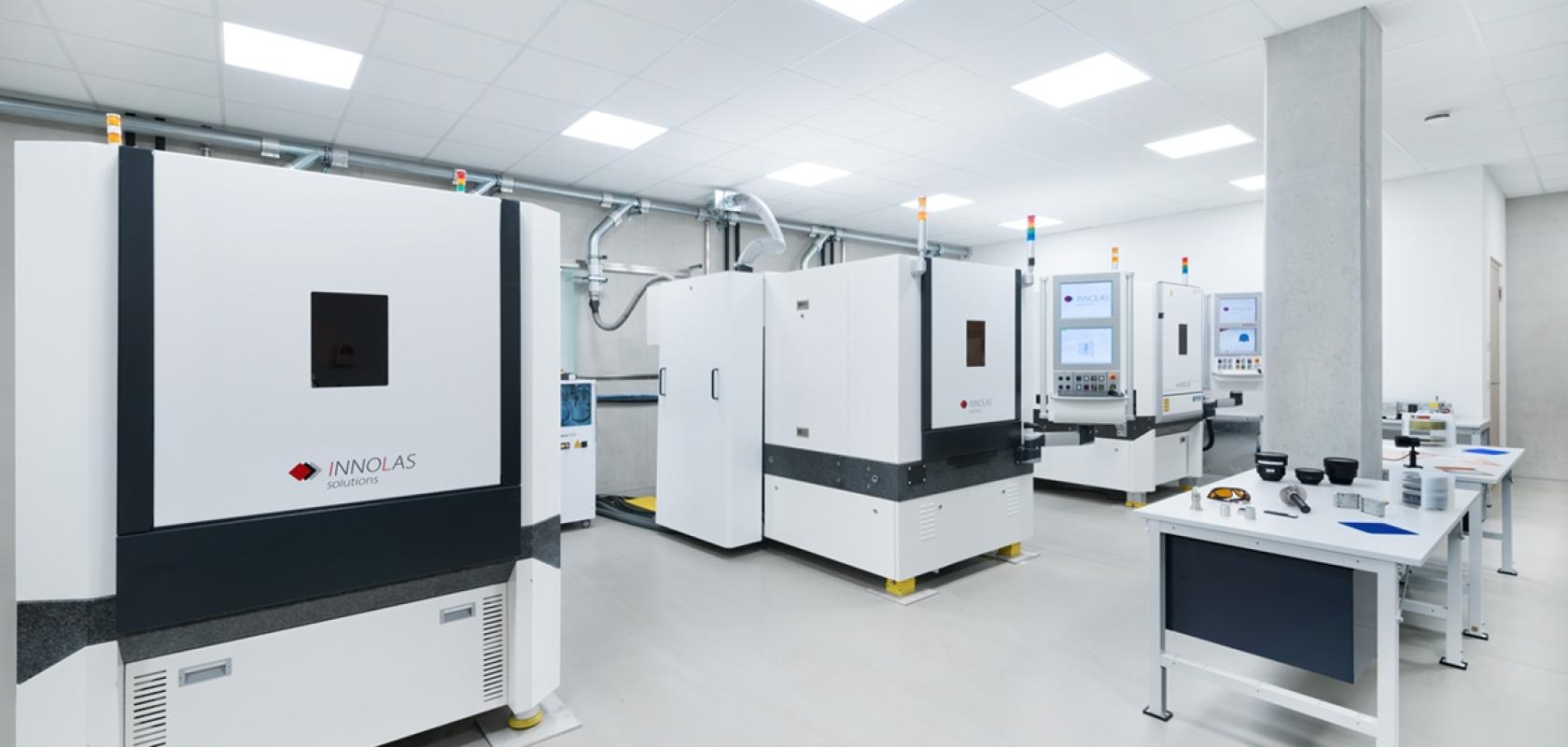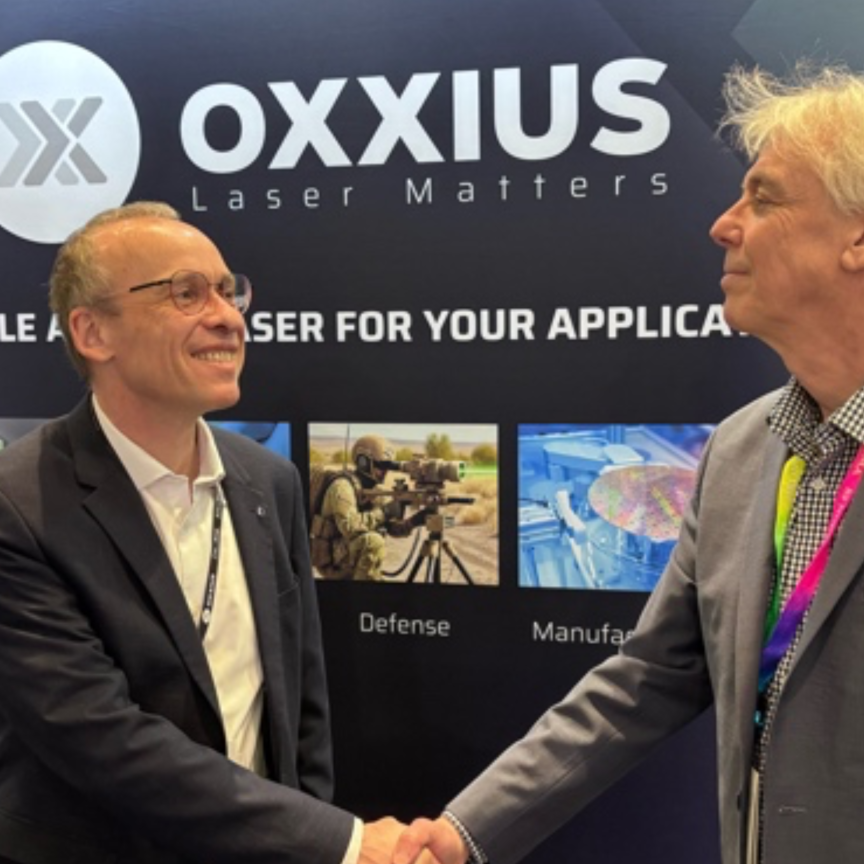EPIC’s Carlos Lee speaks with Markus Nicht, CEO of InnoLas Solutions, about his young start as CEO and growing a team of eight employees to 130
Tell us about your company
InnoLas Solutions is based in Krailling, Germany and was founded in 1995 as InnoLas Systems, or what we call ‘old InnoLas’. There have been several business areas in the company focusing on specific industries. These include the photovoltaic (PV) unit, the printed circuit boards (PCB) unit, and the glass industry unit, which focuses on laser processing of technical glasses, such as displays for use in mobile phones and laptops.
For the glass industry unit, InnoLas developed a laser system to cut chemically strengthened material, which was a disruptive technology at the time of development. We introduced this glass-cutting technology in 2012 at the glasstec trade show in Düsseldorf. Although we felt that it was a bit early to introduce this kind of technology, we decided to go through with its production. During the show, someone from Corning stopped by our booth, who expressed interest in applying this new technology to their facilities.
After a couple of months of sampling, Corning then offered to acquire old InnoLas in 2013. However, we figured out that they had less interest with the remaining business units. So, we sold the glass unit on its own, and moved the other units to a new building in the same area. With eight people (including myself) from old InnoLas, in 2013 we launched a new company called InnoLas Solutions, which combined the InnoLas PV and PCB units. We called the new company InnoLas Solutions because of its similarity to the known brand of InnoLas Systems.
Following the completion of the sale of InnoLas Systems in January 2014, our team of eight started operating InnoLas Solutions in an empty building, with no tables, no chairs, no computers, no phones, and with thousands of parts on the shop floor. One of the first things we did was to put the company service hotline into operation within two weeks. Two months later, we were back up and running with additional employees and we received our first order from the PV industry in March 2014.
We started the business slowly in the first quarter, but in year one of InnoLas Solutions we reached €10m in turnover. From there, the custom from the PV industry caused this to increase to €18m.
Eventually we had to come up with other strategies to further develop the company, particularly on internationalising the business. And that is how we ended up in discussions of being acquired by CGS, a Swiss industrial investment and management firm with a clear focus on technology companies. InnoLas Solutions was then acquired by CGS in 2018 and we became the enabling platform investment of the Photonics Systems Group.
How is InnoLas Solutions doing at the moment?
InnoLas is performing well. We have had an annual growth rate of 20 to 25 per cent since we began, and we are expecting to maintain this growth. InnoLas Solutions now has a global presence with people in Malaysia, Singapore, Vietnam, China, and Taiwan, as well as the USA. We just acquired a company that we have moved into a new building in Krailling, and there are more to come. When InnoLas Solutions started in 2014, we were eight people, but now our group already has 130 people.
What is your background, and how did you get involved with InnoLas?
I joined InnoLas about 12 years ago. I was 25 years old at that time and I started as a mechanical design engineer. Then, after a few projects, I was promoted to project manager because the company at the time was loaded with projects. The company kept on growing and after re-organisation, I became business unit manager responsible for thin-film photovoltaics. I ran the unit with about 40 of the 100 people working for InnoLas at the time, and my unit was responsible for the development of the glass business. I was part of the negotiation team when Corning proposed to buy out InnoLas Systems.
At one point, the owner of InnoLas, Richard Grundmüller, asked me if I would consider being the CEO of the new InnoLas Solutions and build the company up. For me, there was nothing else to say but yes to that offer, because I was thinking about the next step after Corning’s acquisition of InnoLas Systems. At the time, I didn’t think I was suited to a large corporation. I was young and enthusiastic – I wanted to create things. And although I had no clue about what would happen in the next few years in this new role, I accepted the offer. So, I performed my new function with great pleasure, passion and with a lot of working hours. Looking back now, everything brought me to where I am now.
What are some of the challenges you have had to deal with during your career?
I found it challenging to build an infrastructure that works for an international business, while running the company at the same time. The business is running, euros are coming in and the customers are demanding and requesting things. While all of this is happening, you have to pull up the company structure. As you go along, you must also find the right talent that can grow the company from a strategic point of view, but is hands-on enough to run the business.
Another challenge for me is that, at the time, the speed of development in the PV industry was very demanding. This means you cannot just improve marginally but need to develop disruptive technologies.
When InnoLas Solutions was starting to grow and we were planning strategies to take additional steps toward the company’s development, we also had difficulties on how to internationalise the company. Most European companies in the photonics industry ship their products to markets outside of Europe (for example Asia and the USA). To sustain such business, it is important to maintain your customers. That means building up their capabilities and technically developing with them. And you must do all of this in their time zones, close to their facilities, and in their native languages. This is very simple to put into writing but very tough to execute, and you must figure out how to get your investment back. So, you have to partner with companies with a similar focus or needs, or those that offer the same solutions to almost identical markets, to avoid spending too much money.
Growing a business is arguably challenging. But can you also tell me about an exciting moment in your career?
One of the exciting moments in my career is when InnoLas Solutions was just starting, and we were able to get its operations back from scratch in a short span of time. After only three months of operations, InnoLas Solutions got its first orders and then operations went smoothly for the first year.
What do you have planned for the company?
InnoLas Solutions expects to grow into a larger company with an international presence. Being acquired by CGS, we adhere to its ‘buy and build’ approach. CGS set up a holding structure on top of the acquired company and combined their funds and experience in selling internationally with the technical expertise and market knowledge of the acquired company. This is the buy-and-build approach that will help the company internationalise and transform it into a global manufacturer.
For instance, at the beginning of this year, our group acquired LS Laser Systems, which has a complimentary product. LS Laser offers laser trimming equipment, a product for the electronic industry. Most of the customers requiring laser trimming also need a de-paneling or laser hole drilling tool. This makes LS Laser a matching company from a cross-selling point of view for InnoLas, because we can provide the infrastructure to help them to grow. LS Laser does not have the sales channel needed for the distribution of their products. That is what InnoLas can offer in the US, as well as the Asian market. With this buy-and-build approach, our target is to build an international group running in the range of €80 to €100m in turnover.
What advice would you give to young entrepreneurs in the industry?
Don’t think too much about the challenges – just go for it and do it. Whenever there is an opportunity, some people dwell too much on thinking about difficulties or possible harm that may come their way. While they are weighing their options, the opportunity has passed. If there is an opportunity, go for it and learn along the way. EO


